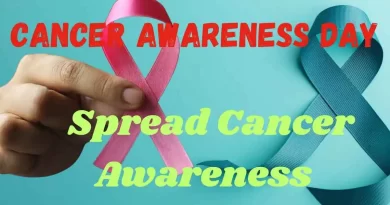Plant-Based Fiber Diet prevents E. Coli Risks
Fiber diet lowers the potential health risks besides protecting against E.coli
Recent studies on plant-based diets which include the all-important fiber, have found out that the former while reducing the risks of critical diseases, also helps restore gut health in the case of the latter. About 50 studies show that vegan diets come with an array of benefits like reduced heart and cancer diseases, including death. Another equally important study has found that friendly bacteria help in maintaining gut health by eliminating harmful E.coli bacteria.
According to a large-scale review published on Wednesday, in PLOS ONE a health journal, analysis from nearly 50 studies was done regarding consuming vegan diets. The studies done from 2000 to 2023, on only plant products excluding dairy products, show that fatal diseases like cancer and narrowed artery diseases linked to the heart can be checked if the former is included in the diet regimen.
Fiber-based diet also helps in colon and prostate cancer
Also, a plant-based diet has been linked with a lower colon cancer graph besides prostate cancer. Exceedingly overweight persons can benefit from these diets while reducing bad cholesterol ‘LDL.’ Also, inflammation is taken care of by the vegan diet. One of the review’s authors and an assistant professor of population health and disease prevention at the University of California, Irvine, Matthew Landry said, “This research shows, in general, that a plant-based diet can be beneficial, and taking small steps in that direction can make a difference.”
He also added that there wasn’t any need to go for a completely vegan diet, instead reducing the intake of non-veg by just one or two days can take care of the problem. The research article, appearing in the journal PLOS ONE, analyzed the results of nearly 50 studies published from 2000 to 2023. The studies examined the health effects of the vegan diets, which restrict any food derived from animals, including dairy.
The possible mechanisms through which the body derives the benefits of a plant-based diet are still being studied. One of the key points, however, hints towards fruits and vegetables containing a high percentage of anti-inflammatory nutrients, including anti-oxidants preventing plaque buildup in the arteries. But more research is needed as the risk of disease is still there which means that the benefits, according to Landry, might go beyond that.
According to him, prevention is independent of the weight factor as there are other reasons behind these diseases apart from weight maintenance. And this is what is directly linked to the overall cardiovascular health. As per the statement of a professor of epidemiology and nutrition at the Harvard T.H. Chan School of Public Health, Dr. Walter Willett, a balanced plant-based diet should include nuts, soy, beans, whole grains, fruits as well as a good proportion of non-hydrogenated plant oils.
Refined sugars and starch in food is the main culprit
He also added that it wasn’t necessary that good health will always follow persons who consume a vegan diet. The main reason according to him, was that there might be variations in the type of vegan foods consumed by the people and the healthiness patterns can vary due to that. In an email, the professor said that refined sugars and starches are nowadays proving to be the worst foods provoking unhealthiness.
Mixed opinions are appearing on the issue of vegan food intake. While the review’s authors put forward the argument that plant-based diets can lead to vitamin B-12 deficiencies, Landry says that the latter can be tackled through taking supplements. He said, “From my perspective as a dietitian, a healthy plant-based diet — either vegetarian or vegan — can really meet just about all your vitamin and mineral needs.”
Another area that needs to be addressed is the inclusion of fibers through a plant-based diet. Here, the gut microbiome plays a significant role in reducing dangerous unfriendly bacteria which has been proved by numerous research-based studies. More than 12,000 people were analyzed for their gut bacteria samples and it was found that they had more beneficial bacteria Faecalibacterium. This particular variant came with the benefit of a low bacteria count of harmful E.coli bacterium for the people who carried it.
Samples tested for the presence of beneficial Feacalibacterium were also carrying compounds arising out of the breakdown of the fibers. The short-chain fatty acids were found to be the main reasons besides the reduction of inflammatory conditions of the bowels and gastrointestinal tracts. Alexandre Almeida, a research fellow at Cambridge University, while communicating through an email with a news channel said, “The main takeaway from our study is that our gut microbiome plays an important role in reducing the growth of potentially harmful bacteria in our gut, and it seems this effect may be modulated through diet.”
Almeida added that more studies need to be undertaken to prove a beneficial link between the intake of fiber and the prevention of harmful bacteria. The studies, he said, were done on a one-time basis and research needed to be done on whether an intake of fibers was really beneficial for a longer time span. The gut microbiome, which includes an array of bacteria, fungi and viruses present in the gastrointestinal tract, varies from person to person.
Almeida also said that as per new insights, consuming high-fiber foods like vegetables, beans and grains can help protect against harmful bacteria. Studies done on stool samples of people from 65 studies across 45 countries, found that a particular composition of anyone’s microbiome can indicate the levels to which that said person’s gut is overrun by harmful bacteria. All in all, about 12,238 persons were tested for their bacterial makeup.
Yet to establish a link between fiber intake and harmful bacteria prevention
It is, however, a little piece of puzzle as per Dr. Walter Willett, a professor of epidemiology and nutrition at the Harvard T.H. Chan School of Public Health and a professor of medicine at Harvard Medical School in Boston. Despite an impressive analysis, more proof was needed to prove a direct link between fiber intake and subsequently, prevention against the harmful bacteria.
There are plenty of other reasons to consume the recommended amounts of fiber, Willett said. “There’s really solid evidence that fiber helps with diabetes, weight control and cardiovascular disease.” Adults need 30 grams of fiber a day, Willett said. Another research paper by Brie Turner-McGrievy, a professor of health promotion, education and behavior at the University of South Carolina says that bad cholesterol is reduced when a plant-based diet regimen is followed.
In a study published by her in 2014, she said that there was ample evidence of the plant-based diets helping in the reduction of type 2 Diabetes, and stroke while also reducing the risk factors involved in heart disease. According to McGreevy, whose research was included in the new review, soluble fiber found in vegan diets like beans and oats was really a powerful tool to reduce LDL cholesterol levels.
She also said that an absence of meat simply means following a plant-based diet. As per her, consuming whole foods provides much benefit rather than relying on fiber supplements, while hoping to have the same results. McGrievy also said that vegetarians tend to consume less fat than meat eaters, but animal-based foods like cheese, a contributors to saturated fat in the diet.








